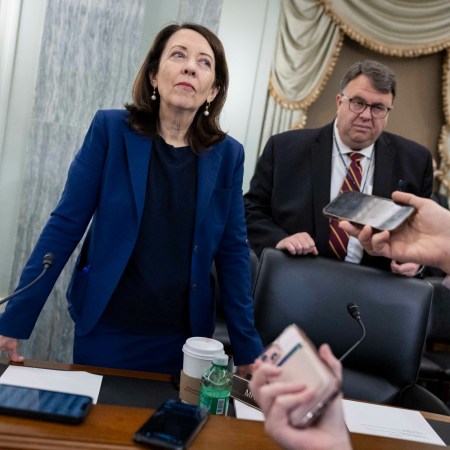Five years ago, scientists at MIT constructed a news clip that never was: President Richard Nixon delivering the speech he would have given had the moon landing failed. Deepfakes have come a long way since then, and while the technology behind them is fascinating to learn about in theory, it’s already taking us to some very unsettling places. Based on one recent investigation, that includes one extremely popular AI voice tool.
Last year, Meta announced upgrades to its AI voice assistant, available on Instagram, Facebook and WhatsApp, that included the addition of celebrity voices, including John Cena, Kristen Bell and Keegan-Michael Key. This in and of itself isn’t new; it’s been more than a decade since Terry Crews lent his voice to Waze, for instance. But that was driving directions; this is something else. According to a shocking Wall Street Journal investigation, Meta’s AI personas took part in what reporter Jeff Horwitz described as “discussions that are decidedly sexual” — including with users identified as minors.
There are two things that come to mind when listening to the Meta AI audio clips accompanying the article. The first is a general sense of shock and horror; the second is that these clips do sound uncannily like the actors Meta is paying for the rights to their voices.
Before the publication of this article, the Wall Street Journal notified Meta of what it had found, and Meta seems to have taken some steps to reduce what AI chatbots can say to underage users. Still, in reading the results of this investigation, it isn’t hard to agree with University of Michigan researcher Lauren Girouard-Hallam, who stressed the importance of tech companies “pausing and taking a step back” in comments made to the Journal.
Deepfakes Are on Reality TV Now. What Could Go Wrong?
The creators say this could make the internet more “human.” Critics disagree.Even when AI chatbots with the voices of celebrities aren’t saying inappropriate things to underage users, AI technology is heading into other ethically challenging realms as well, including the case of a former Washington Post writer who learned that OpenAI can now write articles in an approximation of her voice.
In one encouraging sign, Congress passed a bill this week that would ban deepfake nudes. Yet, the government is obviously playing catch-up as this unprecedented and unnerving technology continues to race ahead.
This article appeared in an InsideHook newsletter. Sign up for free to get more on travel, wellness, style, drinking, and culture.



















